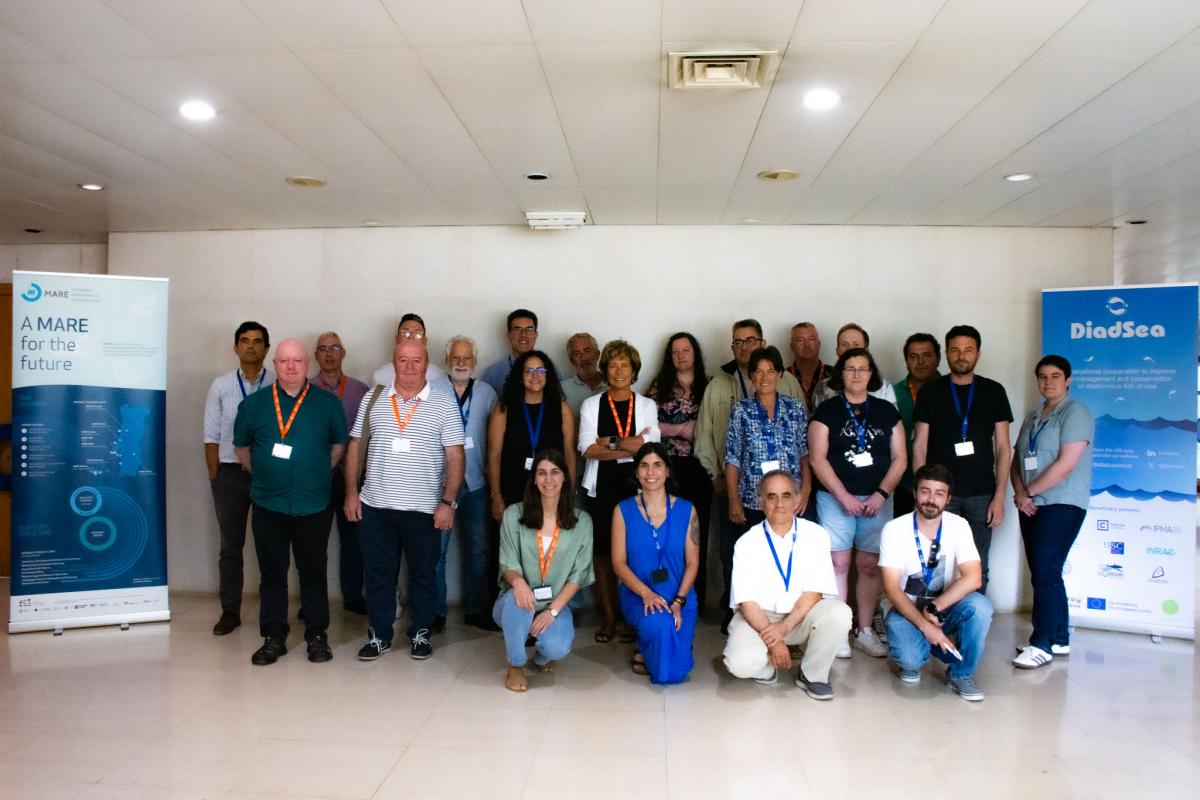Transnational Observatory for the Conservation of Diadromous Fishes created
The official launch of the Transnational Observatory of Diadromous Fish, a new international platform dedicated to cooperation in the management and conservation of migratory species between rivers and the sea, took place in Lisbon, at the Faculty of Sciences of the University of Lisbon (CIÊNCIAS ULisboa).
On June 25, 2025, 27 researchers, managers, technicians, fishermen, companies and associations from Portugal, France, Ireland and Spain met to share best practices, identify common concerns and define future priorities in the context of the conservation of diadromous species.
The meeting was hosted by MARE/ARNET researchers, with representation from the CIÊNCIAS units and the University of Évora, in conjunction with partners such as IPMA, ICNF and DRGM. On the civil society side, a professional fisherman also took part, representing the sector.
The international dimension was ensured by entities with active experience in the protection and management of migratory fish, such as LOGRAMI, dedicated to the conservation of these species in France; INRAE, the French public research institute, and DGAMPA, responsible for maritime policy in France. Organizations linked to the French fisheries sector such as COREPEM and CNPMEM were also present.
Ireland was represented by the national management body for continental fisheries (Inland Fisheries Ireland), while from Galicia came researchers from the University of Santiago de Compostela, members of the Río Xuvia Sports Fishing Society and a specialist environmental journalist.
The program included a presentation of the DiadSea project and an interactive session with the DiadESland game, which aims to make participants aware of the challenges of conserving these species. The afternoon focused on comparing national legislation and best practices, based on a technical report from the project, and culminated with the Observatory's first official meeting, where the foundations for its future operation were laid.
The Transnational Diadromous Fish Observatory aims to be an active space for sharing information and technical advice, promoting an integrated and coordinated approach on a European scale, with a focus on the ecological and socio-economic sustainability of these species. Among the defined objectives are the analysis of emerging threats, the identification of future trends in fisheries and support for the definition of adaptive strategies that respond to the complexity of the life cycle of these migratory fish.
The DiadSea project is led by the University of Évora through MARE, and involves 9 beneficiary partners and 28 associated partners from four countries. It has received funding of 3.35 million euros from the European Regional Development Fund under Interreg Atlantic Area 2021-2027.
